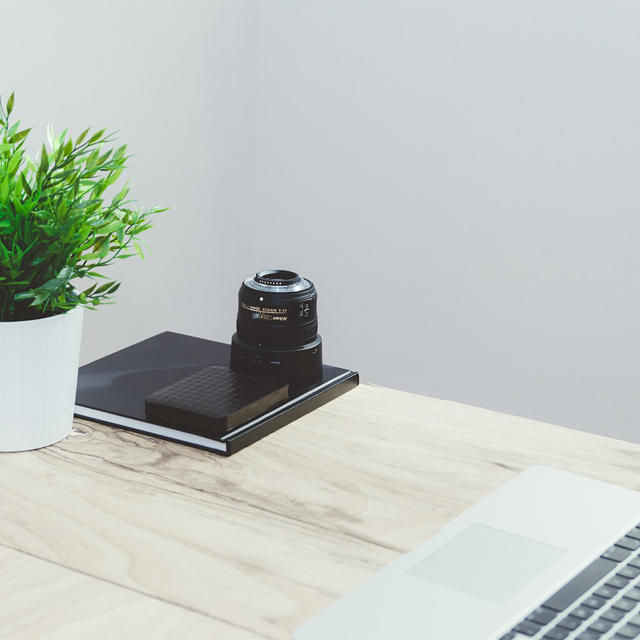Digitization is a great way to reduce clutter and simplify your life. But if not done carefully, you can end up trading physical clutter for digital clutter when your computer becomes hoarded with things you don’t need that become a drain on your time and attention.

Simplifying the Digital Clutter
There’s an unwritten rule in minimalism; dealing with less is much easier than trying to organize more. This applies to the digital world just as much as it does the physical world. That said, here are six areas that are suffering from digital clutter and some ideas to simplify them.
1. Desktop
Saving files to your desktop is a good way to make things easy to reach. But you should also be careful not to let your desktop get to crowded to the point where it becomes distracting and fatiguing.
Clear away items that are no longer relevant or important. For items that you may need later such as tax papers, move them to a folder that’s named and organized to make it easier to find later. A clean desktop can make it easier to focus the next time you boot up your computer saving you precious time.
2. Documents
As great as it is to be able to scan and digitize paperwork and not have to worry about dealing with drawers of paper clutter, it’s not so great when the problem transfers to your computer. Consider deleting files that you have not used in the last thirty days.
If possible, manage your bills online. Usually, you can download any records, receipts and invoices later if you ever need to. If your service provider keeps these records, you can often get away with not even having to keep them on your computer. This can also reduce the amount of paper being delivered to you saving you more time a and energy.
3. Web browser
If you’ve chosen to manage your bills online to reduce the amount of paper you have to deal with, you probably use your web browser quite a lot. In this case, you’ll want to make sure that the websites you use can be found quickly and easily.
Remove any bookmarked sites that you no longer visit if they’re no longer updated, and make sure the sites you do visit are organized so you can get to them with little stress. I’d also recommend a password management system such as LastPass to help you maintain online security while keeping things as simple as possible.
4. Email
In its early days, email was much easier to manage compared to today. But as more and more companies and websites use your email address, the potential for your inbox to be abused is greater than ever.
Unsubscribe from any promotional newsletters that have no other purpose than to sell you things you don’t need. If you get a lot of junk mail from unfamiliar or suspicious senders, I recommend using a spam filter rather than clicking on any of the links as they may well be harmful to your computer. Your email provider should have a “Mark as spam/junk” option that will learn what junk mail looks like and automatically send it straight to the trash before you even see it.
5. Music
Today’s music industry is definitely something remarkable. You can find and listen to as much music as you like without having to own a single CD, vinyl, or cassette tape. To be able to store your music on your computer and not have to worry at all about shelf space can help make life easier. Until you find your hard drive full of random songs that you listen to once in a blue moon.
Weed out and delete any random singles (or albums) that you don’t listen to anymore leaving only the music you love. With the Internet, you can always go back and find that odd song that you want to listen to on rare occasions.
If you listen to a lot of music, consider a subscription service like Spotify or Apple Music where you get access to an entire library for a monthly fee. Not only can this be more cost effective if you like to listen to a lot of new music, but it shifts the responsibility of storage to the provider allowing you to focus on the enjoyment of listening.
6. Photos
A picture is worth a thousand words. Photographs can be great when sharing your stories and experiences friends and family and can often enhance the conversations you have with others. But it’s also easy to fall into the trap of becoming attached to photos even if they don’t bring you much value. It’s important to remember that memories will always be in held in your mind and not in objects and or pixels.
If you have any duplicate photos of the same person, object or place, choose the one you like most and delete the rest. The same thing can be said for photos that are blurry or noisy that you don’t feel too satisfied with. A good rule of thumb is to put yourself in the shoes of the person viewing your library. Show people what you’ve experienced in ways that they can really enjoy.
Digital may have it’s challenges, but it also has its benefits too. Keep your digital life as clean and clutter free as your home life, and it might just help you live more simply and more freely.